By the Community Association Attorneys at SwedelsonGottlieb 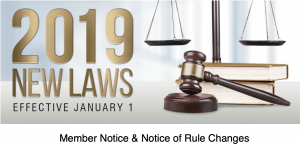
Through SB 261, the California Legislature fixed some issues with prior legislation dealing with delivery of notices and related matters and generally fixed some issues that had come up after prior legislation was adopted. This bill became effective in January 1st and amends the following existing sections of the Civil Code as stated:
• Email Consent to Document Delivery — Civil Code §4040 (Individual Notice), which allows for individual delivery of notices and other documents by email if an owner consents to this in writing was amended to allow an individual owner to permit/revoke consent to allow individual notice by email. While most attorneys thought that an email was considered a writing, this amendment eliminates any confusion.
 HOA Law Blog
HOA Law Blog



 SwedelsonGottlieb annually updates and publishes its Disclosure and Notice Checklist as a resource for Managers and Board Members of California Community Associations. The updated Checklist is 14 pages (there are a lot of things that California community associations are required to give notice of or disclose) and sets out what disclosures and notices California community associations are to provide to homeowners, when and how they are to be provided, as well as other considerations. Included is information regarding the Code requirements for the Annual Budget Report, the Annual Policy Statement, Fiscal Year End Disclosures, and other Additional Disclosures/Notices. We have included information regarding the recent changes to Civil Code Section 4041 relating to the solicitation of owner mailing addresses, etc. and the required New Management Disclosures.
SwedelsonGottlieb annually updates and publishes its Disclosure and Notice Checklist as a resource for Managers and Board Members of California Community Associations. The updated Checklist is 14 pages (there are a lot of things that California community associations are required to give notice of or disclose) and sets out what disclosures and notices California community associations are to provide to homeowners, when and how they are to be provided, as well as other considerations. Included is information regarding the Code requirements for the Annual Budget Report, the Annual Policy Statement, Fiscal Year End Disclosures, and other Additional Disclosures/Notices. We have included information regarding the recent changes to Civil Code Section 4041 relating to the solicitation of owner mailing addresses, etc. and the required New Management Disclosures.  According to CAI’s California Legislative Action Committee, there is still time to stop AB 634, a bill that impacts a condominium association’s ability to control the placement of solar panels in common interest developments. BUT YOU MUST ACT TODAY BEFORE THE GOVERNOR SIGNS THIS BILL INTO LAW.
According to CAI’s California Legislative Action Committee, there is still time to stop AB 634, a bill that impacts a condominium association’s ability to control the placement of solar panels in common interest developments. BUT YOU MUST ACT TODAY BEFORE THE GOVERNOR SIGNS THIS BILL INTO LAW.
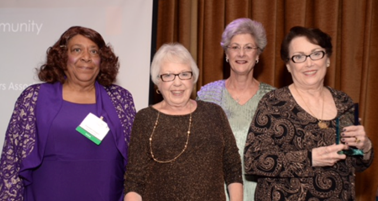 Board members Betsy Koehler, Lois Riopelle and Carolyn Cooper were present to accept this prestigious award from Chapter President-Elect Joanne Pena, which was given to this Association because of the hard work and effort the Board undertook to pass a large special assessment for needed common area repairs and renovation work.
Board members Betsy Koehler, Lois Riopelle and Carolyn Cooper were present to accept this prestigious award from Chapter President-Elect Joanne Pena, which was given to this Association because of the hard work and effort the Board undertook to pass a large special assessment for needed common area repairs and renovation work. Considering how contentious the campaigns for president have been for the election of our next president, it is amazing that we have not received more requests from our California community association/HOA clients for advice on how to deal with political signs. The fact is that we have generally seen less political signs posted on properties then I remember in past elections. With respect to the presidential election, that may have something to do with people not really wanting to out themselves as a supporter of one candidate versus another.
Considering how contentious the campaigns for president have been for the election of our next president, it is amazing that we have not received more requests from our California community association/HOA clients for advice on how to deal with political signs. The fact is that we have generally seen less political signs posted on properties then I remember in past elections. With respect to the presidential election, that may have something to do with people not really wanting to out themselves as a supporter of one candidate versus another.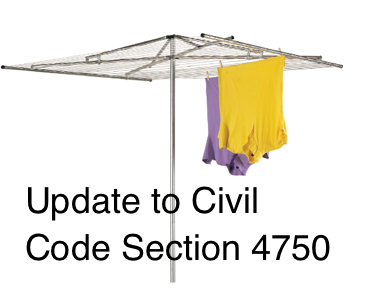 From the Community Association Attorneys at SwedelsonGottlieb
From the Community Association Attorneys at SwedelsonGottlieb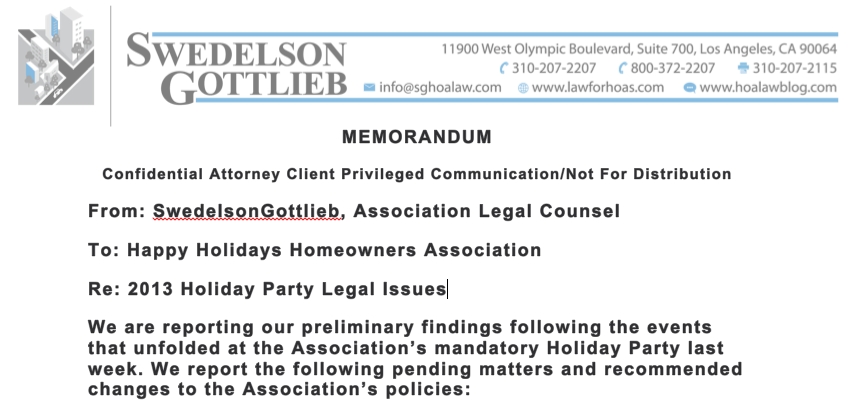
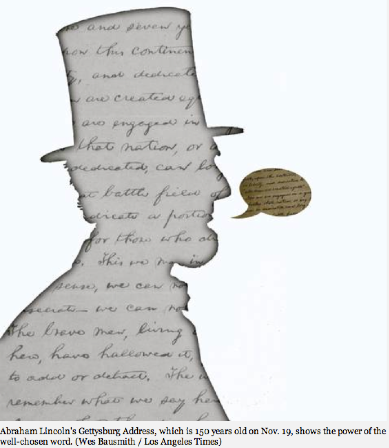 How clear is your writing? Do you spend time editing to make sure that your message is clear and concise? Are your communications rambling? Sometimes community association managers or board members think that writing in legalese will impress their attorneys. Or that using long, technical or sophisticated words will sway homeowners to action. Long words and too many of them can make all of us feel like we’re spinning around in the endless loop of the old Abbott and Costello “Who’s On First?” routine. How do you get off that not-so-merry-go-round?
How clear is your writing? Do you spend time editing to make sure that your message is clear and concise? Are your communications rambling? Sometimes community association managers or board members think that writing in legalese will impress their attorneys. Or that using long, technical or sophisticated words will sway homeowners to action. Long words and too many of them can make all of us feel like we’re spinning around in the endless loop of the old Abbott and Costello “Who’s On First?” routine. How do you get off that not-so-merry-go-round?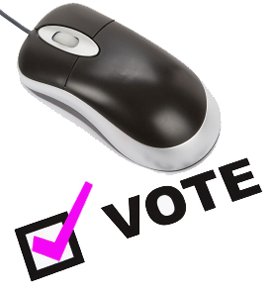 California Legislative Action Committee (CLAC) Chair Pamela Voit has issued the following statement on AB 1360, authored by former Assemblymember and newly elected Senator Norma Torres, and co-authored by Assemblymember Richard Gordon, sponsored by the Community Association Institute’s California Legislative Action Committee (CAI-CLAC).
California Legislative Action Committee (CLAC) Chair Pamela Voit has issued the following statement on AB 1360, authored by former Assemblymember and newly elected Senator Norma Torres, and co-authored by Assemblymember Richard Gordon, sponsored by the Community Association Institute’s California Legislative Action Committee (CAI-CLAC).